This academic year, the Writing Center was able to hire three new academic staff members, all of whom are recent graduates of UW-Madison’s PhD program in English. Below, we’ve asked them to respond to a series of questions with the hope that you, our readers, will be able to get to know them through their words.
![]()
Angela Zito
 Title: Faculty Associate and Interim Director of Madison Writing Assistance
Title: Faculty Associate and Interim Director of Madison Writing Assistance
Your past degrees and where you earned them: MA and PhD in English, UW-Madison; BA, Albion College
Describe what you do in the Writing Center on a given day.
A good amount of my time is spent coordinating and collaborating with students, instructors, and program administrators across campus and beyond—which means I’m on email quite a lot! As coordinator of our workshop offerings, I work closely with our Writing Center administrator on monitoring registrations and evaluations of our Writing Center workshops, and I’m regularly in conversation with our workshop leaders (who are experienced Writing Center instructors)—brainstorming new approaches to teaching these workshops, tailoring them toward specific audiences, incorporating active learning and other high impact practices, etc. As coordinator of our accessibility initiatives, I liaise with Access Consultants at our campus disability service office, the McBurney Disability Resource Center, and help pair students affiliated with the McBurney Center with members of our talented staff. As Interim Director of Madison Writing Assistance (MWA), I communicate with our many community partners, including public library branches and neighborhood centers, as well as our instructors. When I’m not planning, scheduling, and brainstorming with other people, I’m working one-on-one with graduate and undergraduate student writers, traveling across campus to co-teach a lesson on writing through our Outreach program, or leading one of our many workshop offerings.
How have your past experiences come into play in your current role?
This is my sixth year working in the UW-Madison Writing Center, and this new role certainly has me drawing on those past years’ experience! Having been an instructor in our main location, at satellites and online, for workshops and Outreach, and with MWA, I came into the position with a good sense of the reach our Writing Center has on this campus and in the Madison community.
What do you enjoy most about Writing Center work?
Meeting people where they are.
Tell us about your own writing projects (past or present). I’m currently working on a couple article manuscripts adapted from dissertation chapters.
What are you reading these days?
Steven Pinker’s The Language Instinct and the UW-Madison Go Big Read, The Poison Squad.
Finish this sentence: “When I’m not at work, you can find me…”
contentedly doing home repairs, yard work, knitting, or crushing The Legend of Zelda: Breath of the Wild in Master Mode.
![]()
Jennifer Conrad
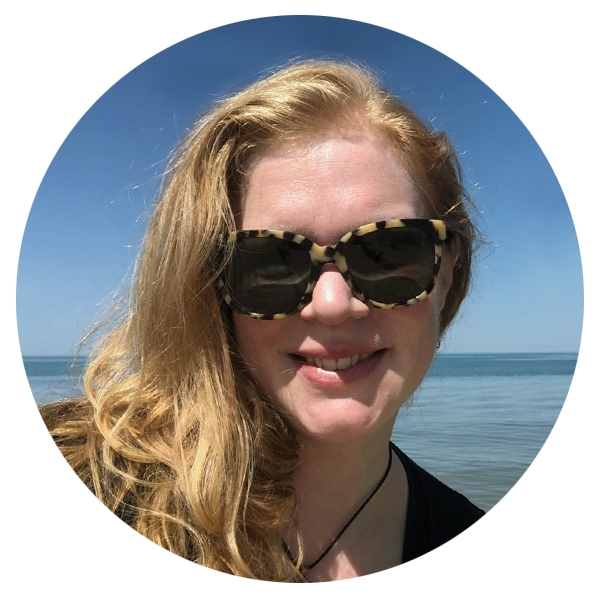 Title: Faculty Associate
Title: Faculty Associate
Past degrees & where you earned them: MA and PhD in English, UW-Madison; MFA in Creative Writing, American University
Describe what you do in the Writing Center on a given day.
In the Writing Center, I have a number of different responsibilities. As the coordinator of the Writing Center’s five residence hall and library satellite locations, I work with campus partners and Writing Center instructors to ensure that we are able to meet students where and when they are to talk about in-progress writing. On Tuesday mornings, I run a writing group for graduate students, who come from a number of different departments and programs on campus. The group gives them a chance to work on their current writing projects as well as connect with other students at a similar place on their educational path. In addition to this, I meet individually with students who are referred to us by the McBurney Center, lead workshops with topics such as “Making Your Presentation Slides Clear and Dynamic,” and (as Hyonbin discusses in her interview below) planning for staff meetings. I’ve also been surprised to find myself doing a good bit of graphic design work for the Writing Center: from designing a new outreach board (our previous one dated back to 2006!) to developing print and electronic materials to promote the celebration we’re holding on Friday, November 8 to celebrate 50 years of the Writing Center at UW-Madison. This event requires planning on a number of different levels, and it’s exciting to see it take shape! In saying all of the above, I recognize that I haven’t talked about a specific day, exactly, but that’s because the work varies so much on any given day, which of course keeps things interesting.
How have your past experiences come into play in your current role?
At UW-Madison, among other responsibilities, I’ve worked as a writing instructor, a co-director of the English 100 Tutorial Program, a Writing Center tutor, and an academic advisor for the College of Letters & Science Honors Program. The advising work included leading group orientation sessions for incoming freshmen, working with individual students to choose classes both at SOAR and in “regular” advising, and coordinating with professors to help students earn honors credit in various courses—all of which gave me a much bigger picture of the university’s layout, as well as the role each unit takes on within this larger structure. My work as a writing instructor has always been infused with my love for writing as a medium of expression, and this, I think, carries over into all of the work that I do at the Writing Center. As for design work? In another lifetime, I might have been a graphic designer. In this one, I’m self-taught but have, over the years, gained a lot of experience working in Photoshop and InDesign, programs for which my appreciation grows each time that I work with them.
What do you enjoy most about Writing Center work?
I love how working with students on writing is like figuring out a puzzle: you’re trying to help them with writing at the same time that you’re working with them to see the piece of writing—and sometimes themselves—differently. Each student (and piece of writing) is an individual, and I love the chance to listen deeply and to ask questions; both of these practices increase my own learning and help me come to see writing from different perspectives.
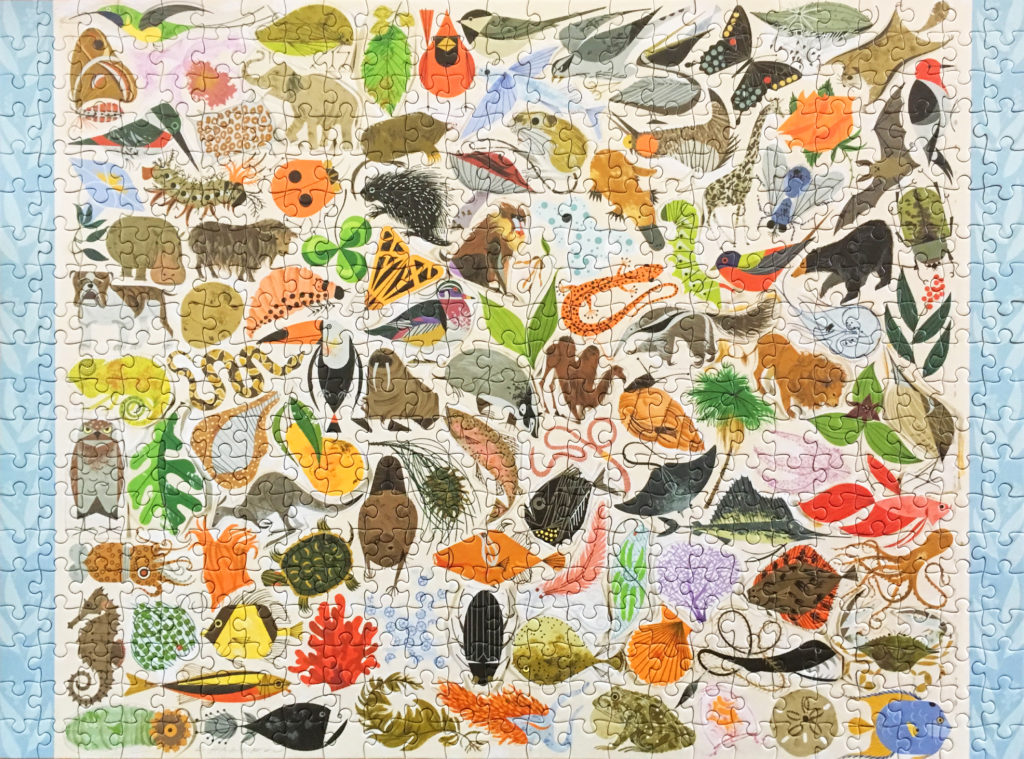
Tell us about your own writing projects (past or present).
Many of my writing projects over the years have been poetry. I was fortunate to publish my MFA thesis as a book (A Cartography of Birds, LSU Press) shortly after graduation. I’ve since published two chapbooks (Species of Light, Bellywater Press; and Not If But When, Salt Hill) and numerous individual poems in literary journals. My dissertation, which I completed in 2015, explores the essential strangeness of animals as depicted in recent literature and visual art that and discusses how embodiment, at the same time that it traumatizes us, offers a way to affirm likeness and thus respond ethically to animal others, who both resemble and do not resemble ourselves.
What are you reading these days?
As a prolific beginner but slow finisher, I’m partway through a number of different books. I’m currently reading Clay’s Ark, the third book in Octavia Butler’s Patternist series; Peter Wohlleben’s The Hidden Life of Trees, adrienne maree brown’s Pleasure Activism; G.C. Waldrep’s Feast Gently; Anna Tsing’s The Mushroom at the End of the World, and Donna Haraway’s Staying with the Trouble. I also just picked up Brian Teare’s Doomstead Days, which is sitting on my desk waiting for me to find a few extra minutes at some point to dive in.
Finish this sentence: “When I’m not at work, you can find me…”
hanging out with my family, which includes two very active young boys, a husband, a deceptively cute but opinionated dog, and a tailless cat.
![]()
Hyonbin Choi
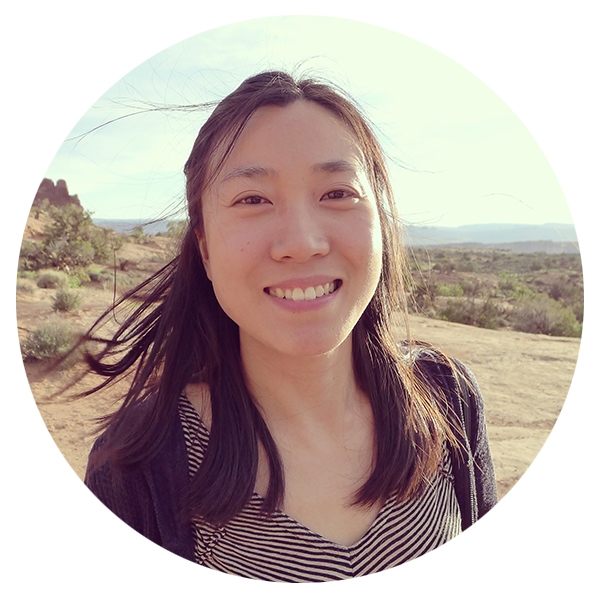 My name is Hyonbin Choi, and I’m one of the career staff members of the UW-Madison Writing Center alongside Angela and Jenny. I hail from Seoul, South Korea, and came to UW-Madison to do a PhD in English, lit studies. I began working at the Writing Center as a tutor in Fall 2014 and served as one of the TA coordinators from Fall 2016-Spring 2017. After graduating last summer, I worked for a year as a postdoc in the English department, before taking up the current position at the Writing Center.
My name is Hyonbin Choi, and I’m one of the career staff members of the UW-Madison Writing Center alongside Angela and Jenny. I hail from Seoul, South Korea, and came to UW-Madison to do a PhD in English, lit studies. I began working at the Writing Center as a tutor in Fall 2014 and served as one of the TA coordinators from Fall 2016-Spring 2017. After graduating last summer, I worked for a year as a postdoc in the English department, before taking up the current position at the Writing Center.
My day-to-day work varies widely from overseeing daily operations in the main center, leading workshops, meeting with other staff members, mentoring TA staff members and undergraduate writing fellows, doing outreach, coordinating graduate writing groups and leading the Thursday morning one, to preparing for larger events such as staff meetings or the 50th anniversary of the Writing Center we’ll be celebrating in November. Every day there is something new, so I never have a moment to be bored! Last Friday, for example, I started my day with a two-hour outreach workshop on writing grant proposals for a graduate course in the Department of Kinesiology. Returning to the Writing Center after the outreach, Jenny and I went over details and last-minute adjustments to the October staff meeting we were having that afternoon from 3-5. We had invited speakers from all over the campus to discuss “Meeting Students Where/As They Are,” including Carren Martin, the director and assistant dean of the Center for First Year Experience; Ruben Mota, the Associate Director of Student Services of the McBurney Disability Resource Center; Brent Fisher, the Admissions Coordinator at the School of Nursing; Jo Hoese and Amanda Lo from University Health Services; Steve Frye, the Assistant Director and Head of Public Services at College Library; and Brenna Swift, the Assistant Director of the Writing Fellows Program and instructor at the Writing Center. Sessions took place in four different rooms, with each speaker giving two sessions during the staff meeting. There were reminders to be sent, schedules and handouts to be printed, and rooms to be prepared before we could begin greeting our staff members and invited speakers. Thanks to all the fabulous speakers who graciously shared their years of experience, expertise, and knowledge, and our dedicated tutors who actively participated in these sessions, the staff meeting went well, ending with our tutors sharing their reflections in both writing and drawings!
And last Friday is also representative of what I enjoy most about Writing Center work. I develop new areas of expertise on the job. I meet people from all over the campus and beyond. I connect with people and organize events for more connections to happen.
Apart from Writing Center work, I am also in the process of revising articles for publication. I wrote my dissertation on early 20th century transatlantic poetry, and I am currently revising an article on Mina Loy’s prose and poetry.
Other than reading articles and books on my research topic, I began re-reading Shakespeare’s plays after watching Twelfth Night and Macbeth at the American Players’ Theatre over the summer. I also like to browse through the letters of T. S. Eliot, and come upon random letters that disclose little details of his life, from formal letters on business and publishing, to personal letters about how his body ails, shortage of money, and occasionally his inner turmoil, all things that make a PhD graduate feel much closer to the poet who was beginning to draft the early stages of The Waste Land a century ago.
When I’m not at work, I love to take walks and hikes whenever possible. Pheasant Branch Conservancy with its Sacred Spring hidden in the prairie land is my favorite place for a walk around Madison. The spring doesn’t freeze over winter, and there are long, dreary winter days when I feel like I must go see the bubbling spring with snow all around.
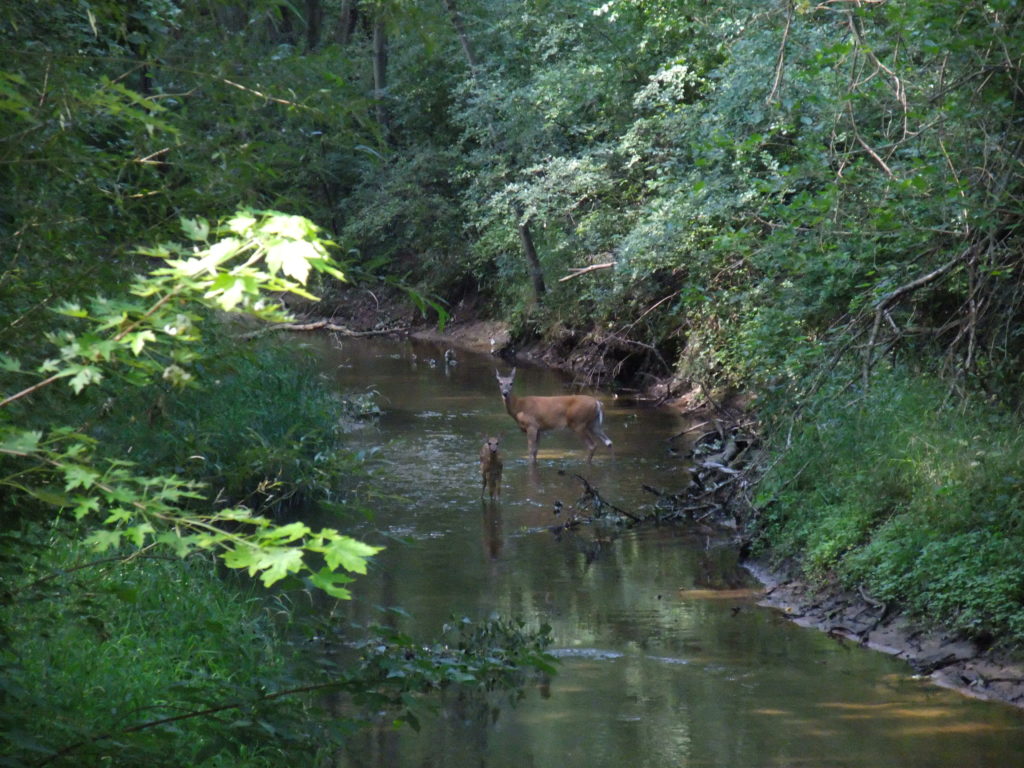
(summer, winter)
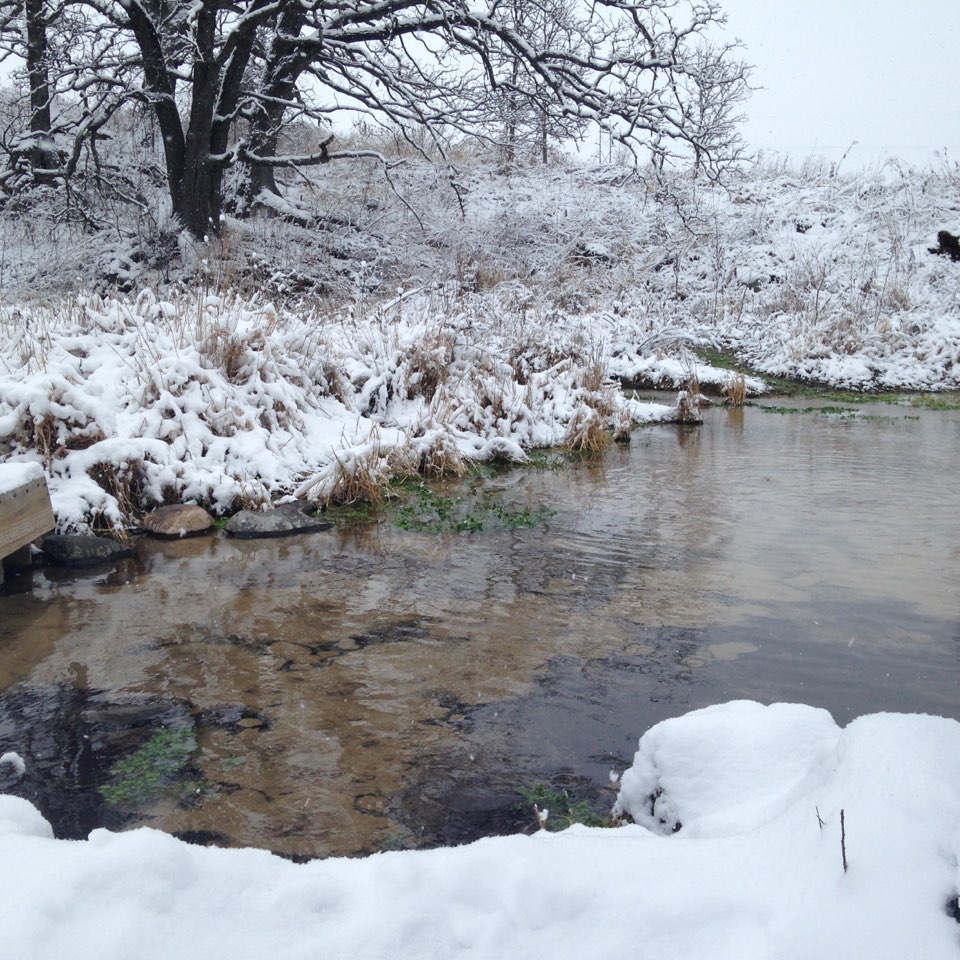


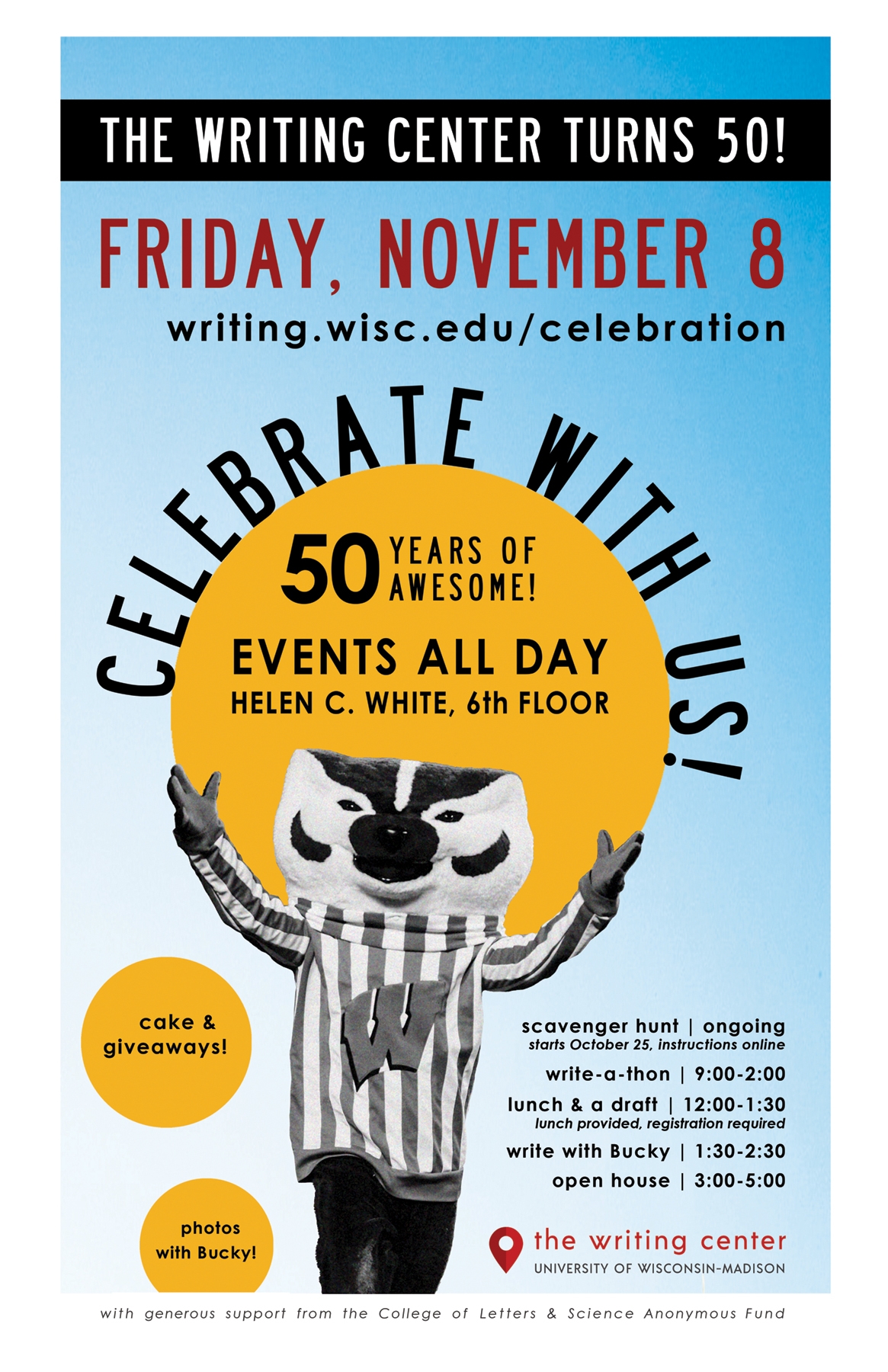
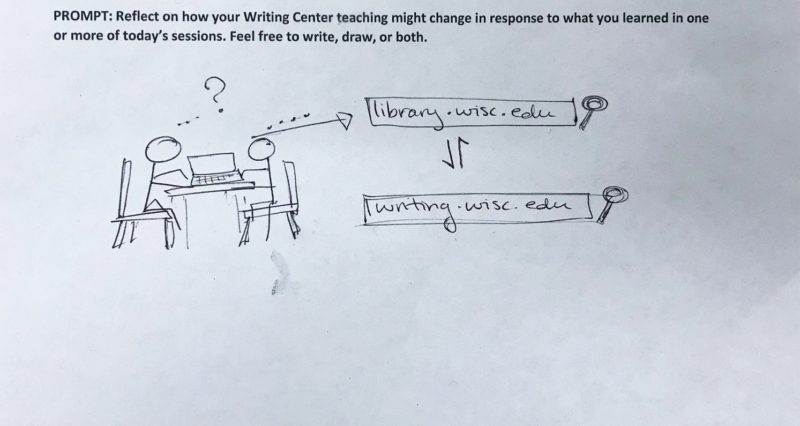
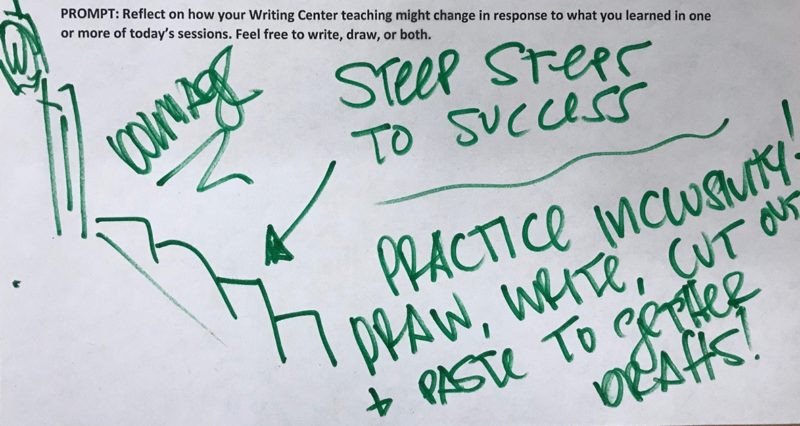
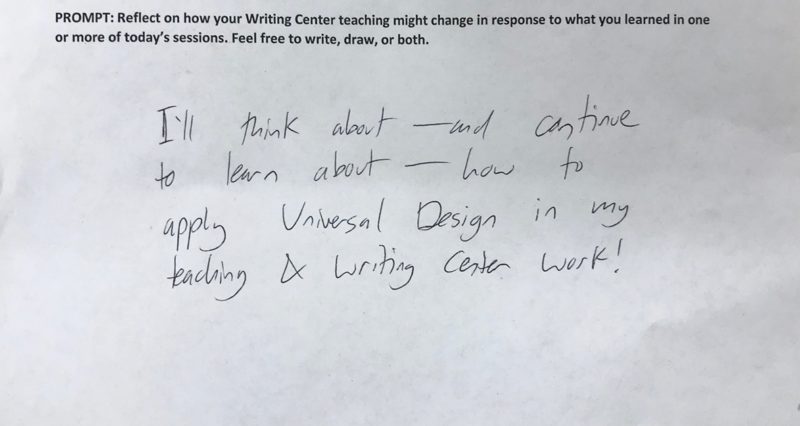
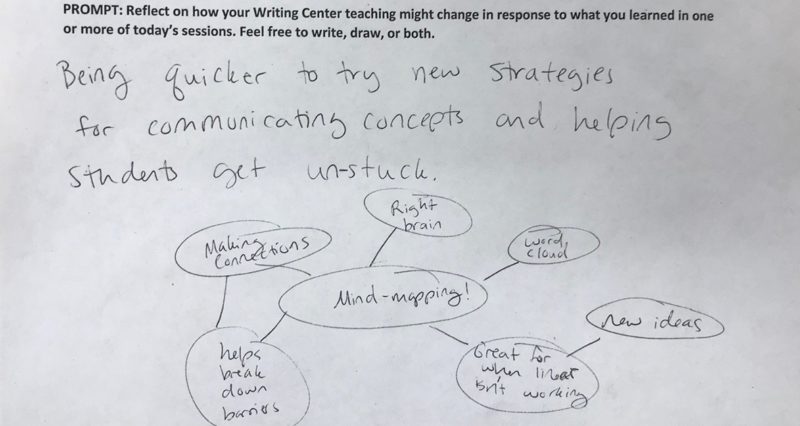
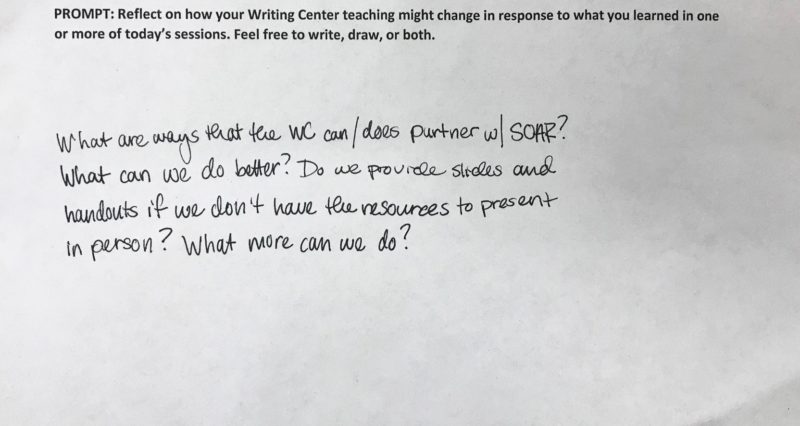

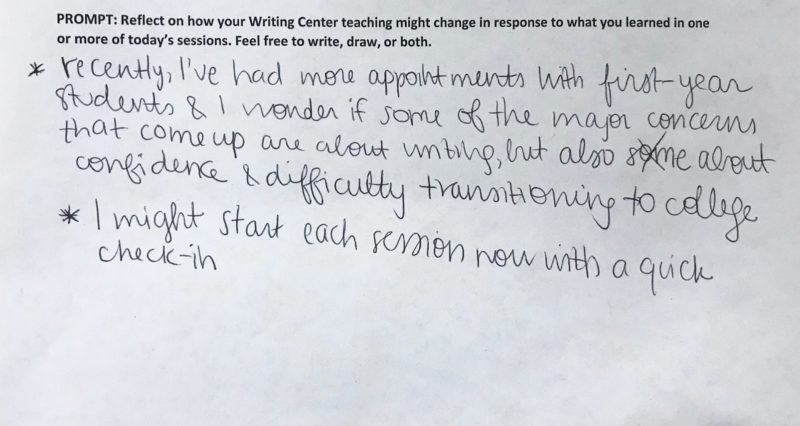
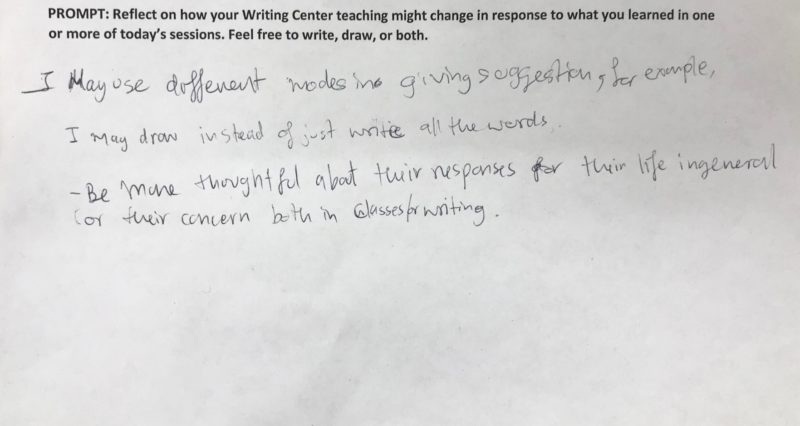
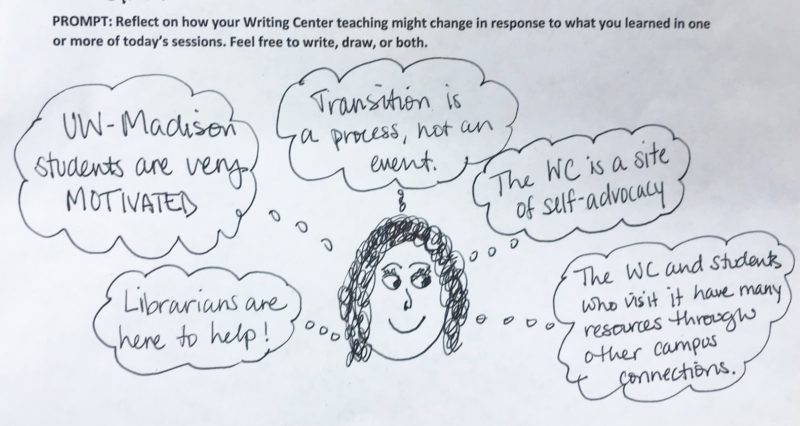
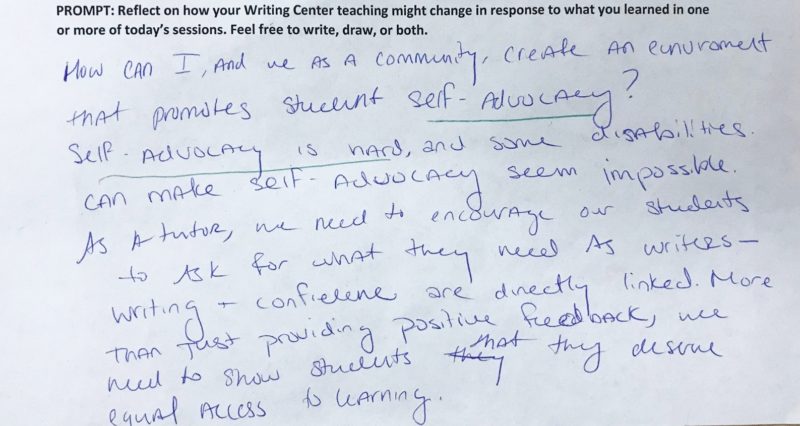
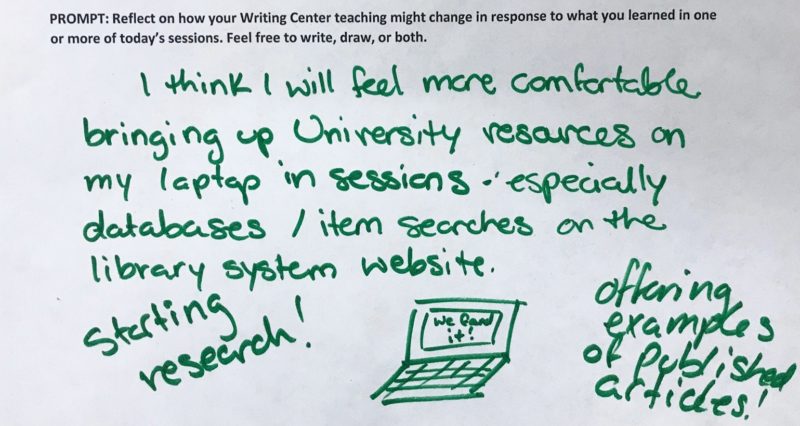
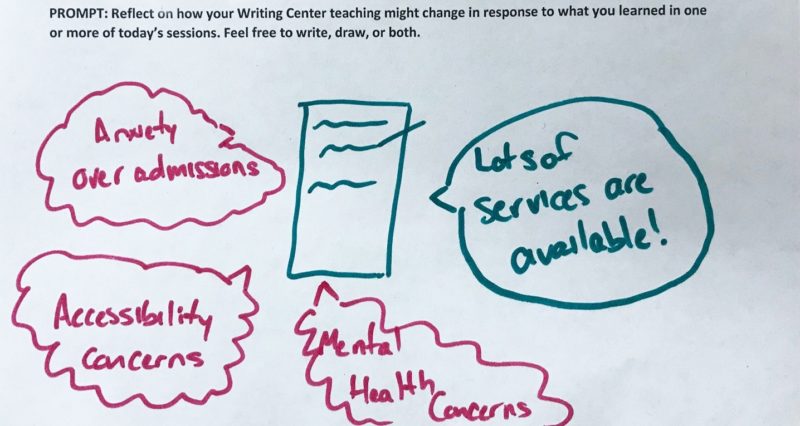
We are so fortunate to have such fantastic academic staff members!